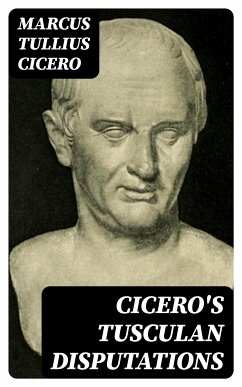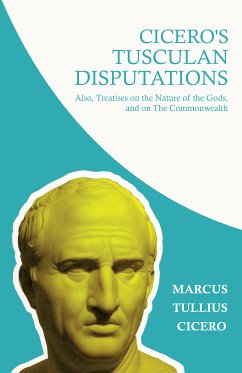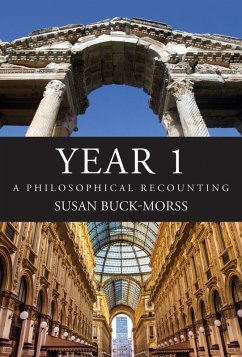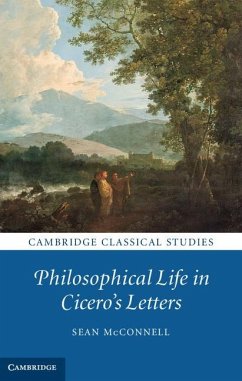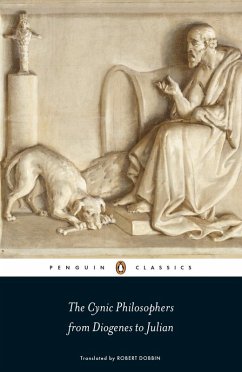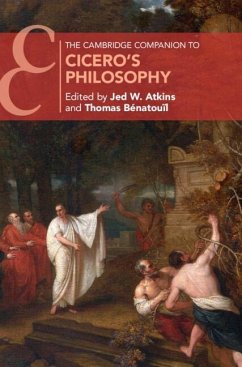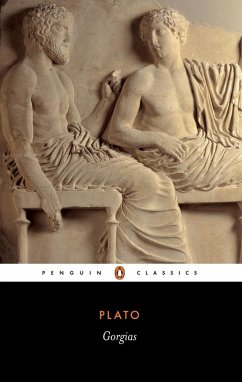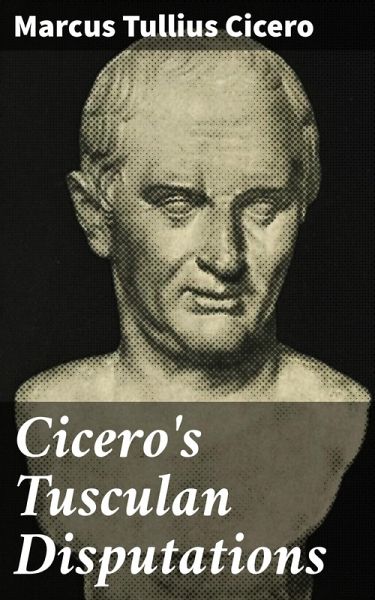
Cicero's Tusculan Disputations (eBook, ePUB)
Enriched edition. Also, Treatises On The Nature Of The Gods, And On The Commonwealth
Kommentar: Vexley, Cassia / Redaktion: Good Press / Übersetzer: Yonge, Charles Duke

PAYBACK Punkte
0 °P sammeln!
In "Cicero's Tusculan Disputations," Marcus Tullius Cicero engages in a profound exploration of philosophical questions surrounding human existence, distress, and the pursuit of happiness. Composed in the format of a series of dialogues, Cicero masterfully employs a blend of rhetorical skill and philosophical inquiry that reflects Stoic, Epicurean, and Academic thought prevalent in Roman society at the time. Through his examination of grief, death, and the nature of the good life, Cicero artfully addresses both theoretical and practical aspects of philosophy, making complex ideas accessible to...
In "Cicero's Tusculan Disputations," Marcus Tullius Cicero engages in a profound exploration of philosophical questions surrounding human existence, distress, and the pursuit of happiness. Composed in the format of a series of dialogues, Cicero masterfully employs a blend of rhetorical skill and philosophical inquiry that reflects Stoic, Epicurean, and Academic thought prevalent in Roman society at the time. Through his examination of grief, death, and the nature of the good life, Cicero artfully addresses both theoretical and practical aspects of philosophy, making complex ideas accessible to a broad audience. Cicero, a statesman, philosopher, and skilled orator of the late Roman Republic, wrote the "Disputations" during a turbulent period in his life, marked by political exile and personal loss. His intimate knowledge of hardship informs the dialogues' themes, as he seeks solace in philosophy and attempts to rationalize human suffering against the backdrop of moral virtue. His work serves not only as an intellectual pursuit but also as a personal journey, reflecting his deep-seated belief in the capacity of reason to illuminate life's complexities. For readers interested in ancient philosophy, Cicero's "Tusculan Disputations" is an essential text that combines eloquent prose with practical wisdom. Its exploration of universal themes resonates across centuries, making it invaluable not only for students of philosophy but also for anyone seeking insights into life's ethical dilemmas and the human condition. In this enriched edition, we have carefully created added value for your reading experience: - A succinct Introduction situates the work's timeless appeal and themes. - The Synopsis outlines the central plot, highlighting key developments without spoiling critical twists. - A detailed Historical Context immerses you in the era's events and influences that shaped the writing. - An Author Biography reveals milestones in the author's life, illuminating the personal insights behind the text. - A thorough Analysis dissects symbols, motifs, and character arcs to unearth underlying meanings. - Reflection questions prompt you to engage personally with the work's messages, connecting them to modern life. - Hand-picked Memorable Quotes shine a spotlight on moments of literary brilliance. - Interactive footnotes clarify unusual references, historical allusions, and archaic phrases for an effortless, more informed read.
Dieser Download kann aus rechtlichen Gründen nur mit Rechnungsadresse in A, B, BG, CY, CZ, D, DK, EW, E, FIN, F, GR, H, IRL, I, LT, L, LR, M, NL, PL, P, R, S, SLO, SK ausgeliefert werden.




